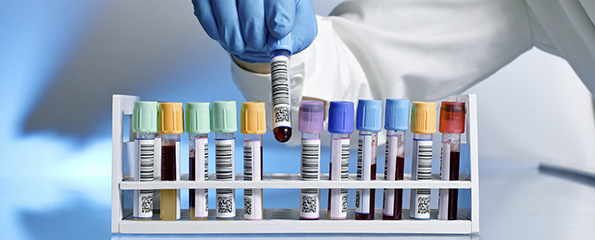People living with diabetes are being encouraged to keep up to date with regular health checks following a recent Lancet study detailing an alarming 11 per cent increase in the mortality rate in people living with diabetes in the UK during 2020-2021.
The study looked at a 15-week period in 2020-2021 and compared pre-pandemic mortality rates with an equivalent period in 2019, accounting exclusively for non-COVID-related deaths.
There were 30,118 non-COVID-19-related deaths in people with diabetes in the 2021 period compared to 27,132 deaths in the 2019 period, representing an 11% increase. The data also captured participation in recommended health checks for people with diabetes.
In 2020-2021, only 853,669 (27%) of the cohort received the annually recommended 8 care processes for people living with diabetes. This was 45 per cent less than 2019-2020, when 1,547,240 people (48%) received all 8 care processes.
COVID-19 containment measures made it harder for people living with diabetes to access regular health checks. As a result, 693,571 people may have missed some of the important health checks and tests to effectively monitor their condition, and reduce the risk of complications, including heart disease and amputations. People with chronic conditions such as diabetes, kidney disease and heart disease need regular pathology tests to manage their condition.
Chair of Pathology Awareness Australia, John Crothers said: “This highlights concerns that we have here in Australia on the impact of reduced participation in healthcare resulting from COVID containment measures during the pandemic. The tragedy of this increase in deaths tells us we need better awareness of the importance of healthcare participation across the board, especially for people with chronic conditions, or at risk of developing them.”
Diabetes Australia Group CEO Justine Cain added, “People with diabetes are at a much higher risk of serious illness from COVID-19 and many people took appropriate steps to limit their risk of exposure to the virus. However, this led to many people missing important health checks.”
Due to the comparable nature of the two countries, and the potential implications beyond diabetes to other chronic conditions the study is worrying for Australian health professionals.
In Australia, routine pathology testing dropped by around 40 per cent across the board at the start of the pandemic and there is concern that many who delayed testing have not yet caught up.
Four of the eight annually recommended care processes listed in the study are pathology tests. These include a glycated haemoglobin check known as HbA1c. This blood test is used to help diagnose and monitor people with diabetes, alongside a cholesterol blood test that looks at the levels of cholesterol and other fats in the blood, a serum creatinine blood test, and urine albumin which are both used to check kidney function.
Chemical Pathologist and PAA ambassador, Graham Jones said: “This study can also be seen to have implications beyond the effects of the COVID epidemic, that for people with diabetes, the best health outcomes require access to full healthcare services, of which regular pathology testing are a major component.”
This study highlights the increased risk of mortality in those living with diabetes who did not receive all eight care processes in one or both of the previous two years.
Diabetes Australia is urging people living with diabetes to keep up to date with their routine management and monitoring diabetes checks, and to not put them off.
Ms Cain said, “We know living with diabetes can be tough and there are a range of different health checks people need to have to stay on top of their diabetes. However, we want to encourage people with diabetes to connect with their diabetes health team. Most diabetes-related complications are preventable if detected early which is why regular health checks are so important.”
Since the beginning of the COVID-19 pandemic, patient diagnosis and monitoring has been severely impacted by Australians missing their health appointments and routine checks.
If patients prefer not to attend health appointments in person, it is possible for a GP to request pathology tests based on a telehealth appointment.

